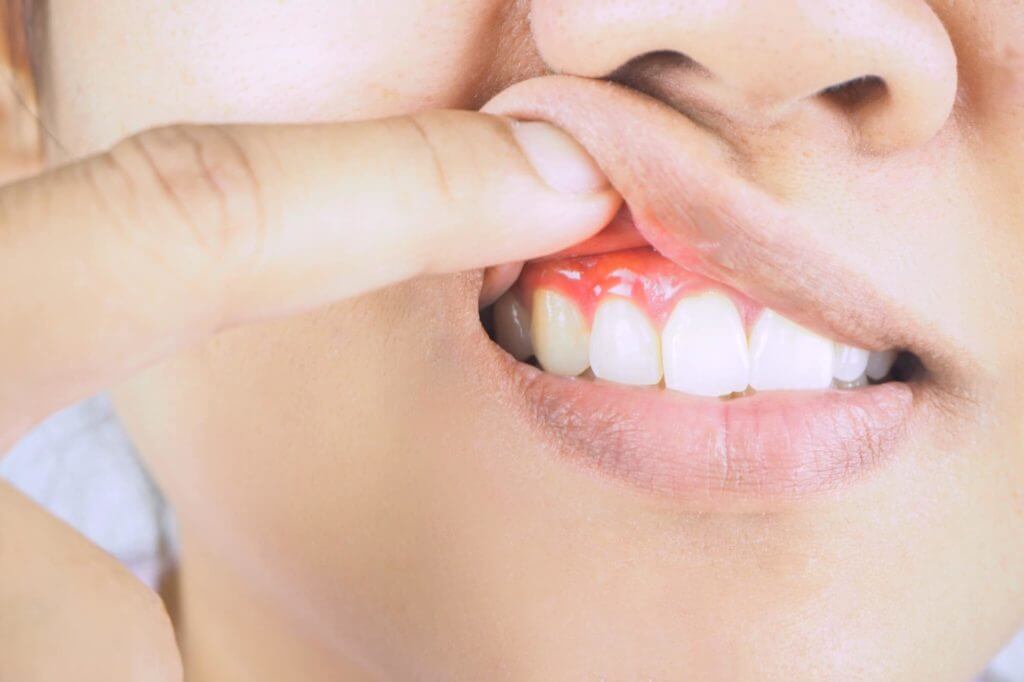
As far as recorded history goes, human beings knew that it was important to brush their teeth. Prior to toothbrushes, Ancient Egyptians used something known as"a "chewstick," a piece of wood that was split on one side (bristles) and pointed to the opposite side (floss). In China, the Tang Dynasty (619-907 A.D.) saw the way that people used to brush their teeth shift. The forerunner of the modern toothbrush was created. It was constructed from Siberian furs of hogs. It also had a bamboo or bone handle. Since that time people have taken better treatment of their mouths, eliminating the bacteria that thrive in moist and dark conditions. The act of flossing and brushing can prevent many dental issues, such as gum disease. Plaque and tartar are products of microorganisms and bacteria that don't get cleaned from your teeth. The buildup of these becomes a sticky film that decays teeth and damages gums. If this issue isn't dealt with the problem can cause gingivitis (the initial stages of gum disease). When it advances further the condition becomes a grave condition called periodontitis. Here at Dixwell Dental, we see patients with gingivitis or periodontitis often. It's a fairly common condition but many people don't know what the specifics of each are. Knowing the basics of each one can help you maintain your gums and stop the development of gum disease. Gingivitis refers to a condition in which healthy gums become inflamed. Microorganisms under the gums can cause swelling. It's true that gingivitis may not manifest itself in a clear way, so when you first notice that you have a problem it may have advanced to a gum condition called periodontitis. Your gums may be swelling or bleeding, and you're wondering whether you're suffering from gingivitis or periodontitis. A trip to Dixwell Dental is the best method to find out what's happening to your dental health. This guide will give you an overview of the many types of gum disease. Gingivitis is one of the most common forms of dental issues. It is treatable and corrected. Gingivitis is a condition in which the gums become damaged and inflamed. Other symptoms could also be present. Gingivitis is a condition that can be reversed by being aware of the symptoms. If you are attentive to your mouth while you clean, you'll be aware of the indicators that indicate that something is starting. When gingivitis is starting in the mouth, it will show signs like gums that are redder than usual or gum line swelling. There may be bleeding while flossing or brushing your teeth more frequently than you would normally. If this happens frequently gum inflammation could be occurring, even though you're not able to detect it. Another indicator that something's in your gums that isn't right is bleeding on the gums that don’t seem to be consistent. Gingivitis can be treated by simply improving your oral health. If you're not cleaning and flossing often, make it a regular habit. If you're having issues and continue to brush, it is worth looking at your technique and checking that you're using the proper angles. A regular routine of oral hygiene includes regular dental checkups. What was the last appointment you had with your dentist? Anything that is more than six months indicates you're ready to schedule an appointment. By conducting a dental check-up we'll be able to spot any upcoming problems early. As gingivitis gets worse, it turns into more than just bleeding gums. A serious gum infection can lead to bone loss and other major health problems. Professional dental cleanings by Hygienists use special tools to remove plaque and tartar buildup. The dentist may also suggest an antiseptic mouthwash recommendation. These simple steps can prevent gingivitis from developing into an even more severe form of gum disease. Patients who develop gingivitis could be unaware or may not even realize they are suffering from it. If left untreated, periodontitis develops. Only a dentist will be able to treat the problem at that point. Periodontium inflammation is the most common type of periodontal disorder. This refers to the tissue and bone between the gums and your jaw. If too much harmful plaque and bacteria grow within these spaces, they form pockets beneath the gum line. The first stage is gradual in its transformation into severe periodontitis. At that point, the disease spreads to the rest of your body. The body's immune system fights the infection, but the infection continues to spread if you don't practice good dental hygiene and proper dental treatment. The severity of periodontal problems increases gradually in stages. As plaque buildup and the spread of bacteria increases and the severity of the symptoms increases. In the beginning, periodontitis is more bothersome than frightening, with symptoms like bright red gums and persistent unpleasant breath. However, gingivitis gum disease is reversible, and periodontitis is not. Untreated periodontitis is likely to become visible as your sensitive teeth and gum health decrease. Loose teeth can cause poor alignment. Receding gums replace healthy gum tissue. If the connective tissue isn't sturdy enough to hold your tooth in its place it could result in tooth loss. The chronic periodontitis condition has a host of other risk factors, too. It is caused by an ongoing infection that is present in the body. This type of gum disease may cause more injuries that can become fatal. It is important not to ignore periodontal diseases if you're informed. As your body battles diseases, it's crucial to visit your dentist and doctor regularly. Inadequate oral hygiene and periodontal problems will never improve without treatment particularly if your diet is poor. You'll end up with lost gums and bone and also medical problems due to the chronic inflammatory response, like cardiovascular disease. Gum disease that is in the advanced stage of periodontitis may be more difficult to deal with. There isn't a quick fix as there is when you want to prevent gingivitis. You'll need to get your teeth cleaned by a professional and keep your mouth clean at home. Your oral health is essential. There's more to it than receding gums. Periodontitis or gingivitis can signal the presence of an infection. Your dentist needs to get inside your mouth to clean out the infection, usually with the help of antibiotics and root planning. This method uses tools to penetrate the soft tissue and remove the debris your gums collected when they became swollen. With a clean gum line, gums are reattached to the teeth. In advanced cases in which a professional cleaning isn't enough. The plaque spreads and gums accumulate debris anyway. Then, if your periodontal condition doesn't improve by taking care, surgical treatment is the next step. Your dentist will remove your gums in order to reach the tooth's root. It is a process for treating gum disease. After the root has been cleaned and the gum tissue has been reconnected. Then, it slowly reattaches to the tooth. While the surgery is only minorly invasive, it's not essential if you're able to prevent gum disease and maintain your teeth and gums. Gingivitis is not always the cause of the development of periodontal diseases. However, this severe gum disease is the main reason for tooth loss. Luckily, with early detection and a thorough clean of your teeth regularly, you can stay clear of it altogether. Gingivitis is the mildest form of gum disease. It's very simple to treat. If left untreated, it can become a more advanced stage of gum disease that you would never want to experience. It's simple to avoid periodontal diseases and the associated complications. Maintaining healthy oral health is crucial. Make sure to visit Dixwell Dental regularly for checkups. We will stop gum disease and other dental problems at the origin!What are the various types of Gum Disease?
What is Gingivitis?
The signs of Gingivitis
How to Relieve Gingivitis
Periodontitis Explained
How Can You Tell if you have Periodontitis?
How to manage periodontitis?
Make sure you are aware of the signs and symptoms of gum disease.
 Schedule Your Visit
Schedule Your VisitHave Any Questions?
Call Us Today at: (203) 404-7006